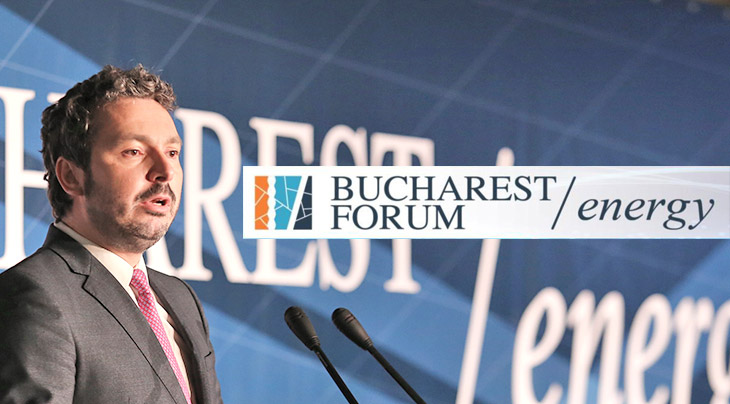Romanian minister for Energy Razvan Nicolescu presented a review of its mandate objectives to representatives of the energy industry in Romania, gathered within the Bucharest Forum Energy 2014. Participants at the event organized by the Aspen Institute Romania have found out the priorities of the Department of Energy and what are the forecasts for achieving the goals set for the end of this year.
I. Updating the Energy Strategy
By early October, the Department will present to the public a first form of the national energy strategy, in order to obtain agreement from all political forces. An eventual discussion in Parliament would give more weight to this document meant to guide governmental actions on energy for the future decades.
Razvan Nicolescu mentioned a global need for energy investment of 3-4 billion annually, an amount that can not be covered solely from the state budget, forced to address with priority the social issues (health, education etc).
Another possible financial resource would be the domestic private capital, which, despite some positive signals – stressed Nicolescu – still has a limited potential to support large energy projects.
According to Energy Minister, the international private capital remains the main source of financing the energy projects. Recently it become easier to attract such funds given that Romania’s macroeconomic data improved, but these flows depend largely a generally stable and predictable business environment, in terms of taxation and regulatory system.
State companies are also a great source of funding hitherto unused Romania and, in this end, the second priority of the Department.
II. Corporate governance in state-owned companies
Romanian state energy companies have missed out the opportunity to engage more strongly in major investment projects. One reason is their financial weakness and lack a clear perspective on business.
“Lack of identity and lack of competence in managing the state companies will not be accepted anymore,” said Nicolescu. So far, the Department’s actions in order to improve the management in the energy companies focused on Elcen, RAAN, Conpet, Hidroelectrica and CEH, where irregularities discovered led to sanctioning the managers.
In return, Razvan Nicolescu referred to the people who run TRANSGAZ (Petru Văduva) and Nuclearelectrica (Daniela Lulache) labeled as “professional models”.
Well managed, the state companies can become powerful investors in local energy industry and beyond, minister considers. As a personal goal, Razvan Nicolescu also announced that first regional acquisition by a Romanian state-own company, will be concluded by the end of the year.
III. Increasing Romania’s role in European energy policy making
Razvan Nicolescu declared satisfied that most of the proposals and positions expressed by the Department of Energy have become part of the European new strategic documents.
Among the proposals affirmed by Romania and adopted by the European Commission, Nicolescu mentioned the development of indigenous resources, diversification of supply sources, reducing the number of priority projects at European level (250 at the moment, the minister said) and defining the critical energy infrastructure, in order to effictively act on increasing the common energy security.
a
On 4 and 5 June 2014, Bucharest Forum Energy gathers the most powerful private actors and government officials in the region, representatives of international regulatory bodies in the energy sector, international financial institutions and energy experts from over 15 countries in Europe, America, the Black Sea region, the eastern Mediterranean area, the Caucasus and Central Asia to discuss solutions to increase energy security and development in the energy sector in the current European and international context.
Bucharest Energy Forum 2014 is organized by the Aspen Institute Romania, in partnership with the Government and the Department of Energy, at the Parliament Palace.
